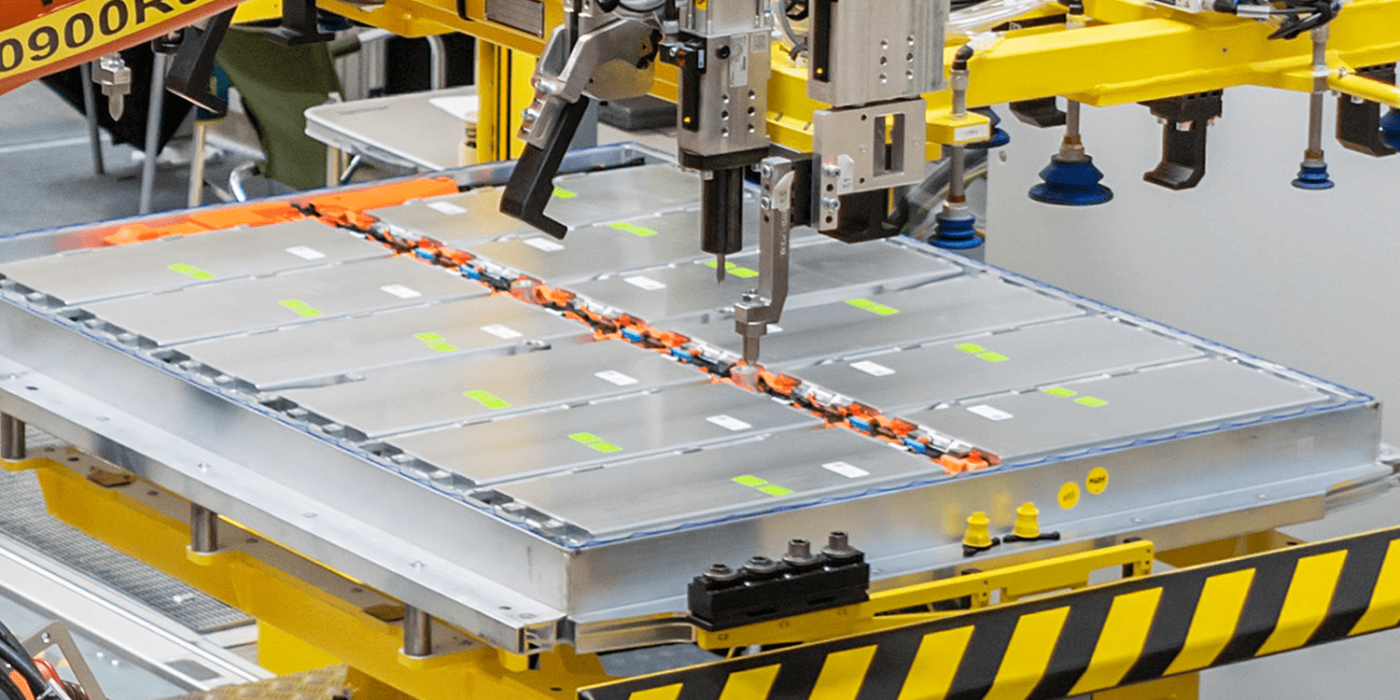Skoda to increase battery system production in 2023
Skoda will install another assembly line for MEB battery systems at its main plant in Mladá Boleslav this year, increasing production capacity to 1,500 units per day. The first assembly line went into operation there in May 2022.
Mladá Boleslav in the Czech Republic is the only European site outside Germany to produce battery systems for MEB vehicles. Battery systems for electric cars of the Skoda, VW, Audi and Seat brands have been assembled there since 2022. Even at the time of commissioning, Skoda talked about expanding the site soon. “We will be reaching the next milestone at the end of 2023 when we bring the second expansion stage online, enabling us to produce more than 380,000 battery systems a year in total,” Christian Bleiel, head of component production at Skoda Auto, said at the time.
Skoda now confirmed its schedule and announced that it would increase capacity to 1,500 units per day. The smallest battery system version build at the plant has a gross energy content of 55 kilowatt hours (kWh) and eight modules. The medium version, with nine modules, comes to 62 kWh and the largest battery, with twelve modules, to 82 kWh. In addition to the modules, which each contain 24 cells, the components of an MEB battery system also include a battery housing with an integrated cooling system, a battery management system and the necessary electrical connections.
The Czech Volkswagen subsidiary also announced a revised version of the Enyaq iV BEV model for this year. The new generations of the Superb and Kodiaq model series are also scheduled to roll to dealerships before the end of the year. Both models will also be available as plug-in hybrids – a first for the Kodiaq.
Moreover, the brand confirmed the acceleration of its electric plans announced last year. To that end, Skoda will launch three battery-electric models by 2026: a compact car, a compact SUV and a seven-seater SUV. Skoda promised first glimpses in the second quarter of 2023. The manufacturer hopes to increase the BEV share of deliveries in Europe to more than 70 per cent by 2030 and invest €5.6 billion in electric mobility by 2027.
Sister brand VW increased its EV sales targets in Europe and North America earlier this week. In Europe, up to 80 per cent of cars sold by VW will now be BEVs by 2030 instead of the previously planned 70 per cent; in North America, a BEV share of 55 per cent is planned by then – up from 50 per cent.
Skoda is sticking to the 70 per cent electric quota for Europe. So the Czech company is not in as much of a hurry as VW. The manufacturer emphasises that “during the transformation phase, vehicles with internal combustion engines will also play a crucial role for Skoda,” but that it will optimise its combustion models. Skoda also refers to the two new PHEVs mentioned above in this context.
Last year, the VW subsidiary delivered 53,700 units of its currently only electric model, the Enyaq. Skoda’s EV sales grew relatively little compared to market trends (44,700 Enyaqs in 2021), mainly due to production issues and volatile supply chains since the Russian war of aggression in Ukraine. It brought the plant in Mlada Boleslav to a standstill for weeks due to a lack of wiring harnesses from Ukraine and forced Skoda to reduce production for a while.
Against this backdrop, which also affected internal combustion models, Skoda deliveries fell by 16.7 per cent across all drive types to 731,300 vehicles (2021: 878,200 units). Apart from the Kushaq model (an internal combustion SUV for India), the Enyaq was the only model to record growth in 2022. As a result, 7.4 per cent of all new Skodas last year were purely electric – in 2021, the figure was five per cent.





0 Comments